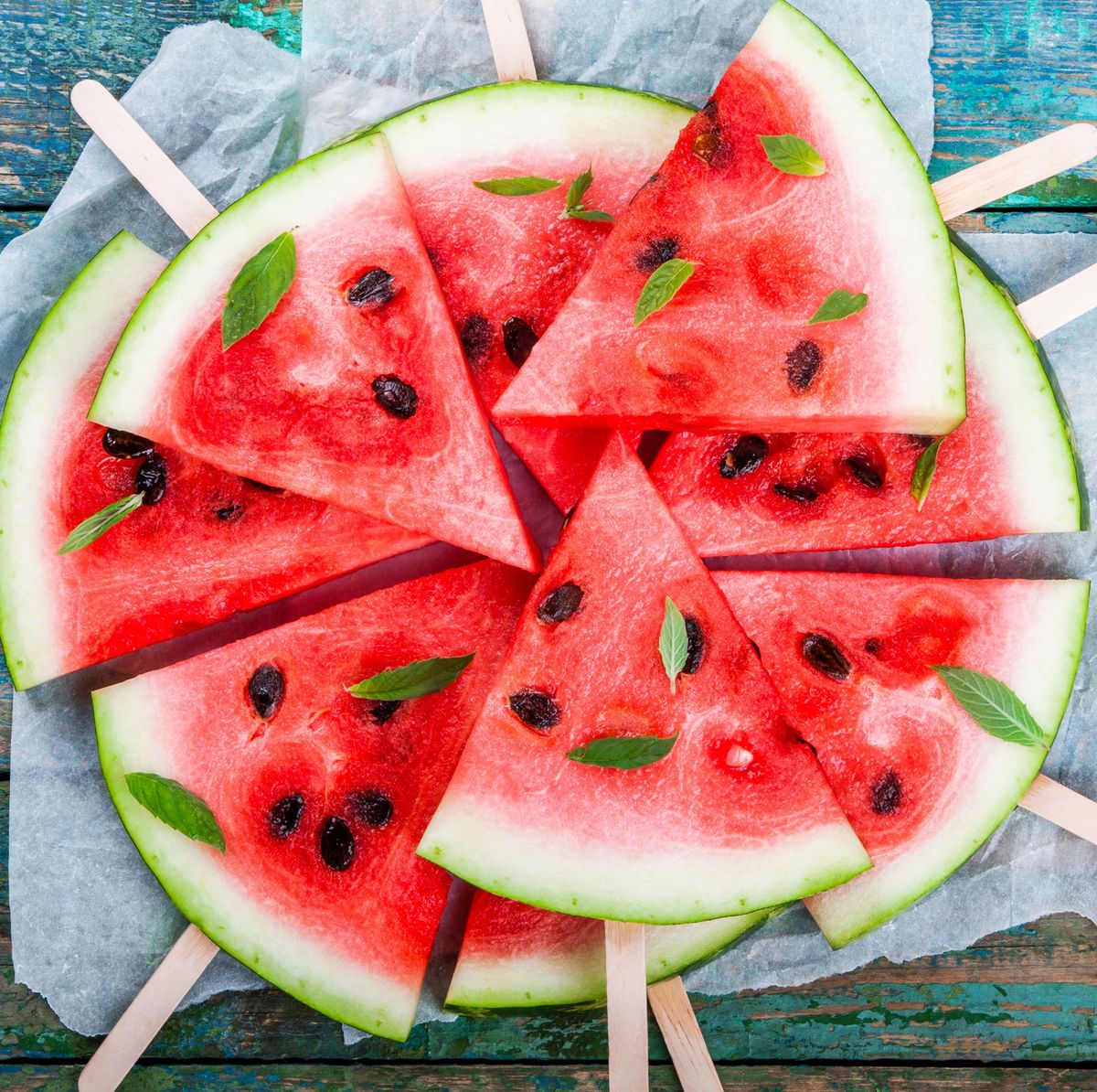What Are the Nutritional Values of Watermelon?
 Learn more about Watermelon
Learn more about Watermelon
What Are the Nutritional Values of Watermelon?
Watermelon, known as a fruit with a high content of water and fiber, is a useful fruit with a wealth of vitamins and minerals. But because of the sugar content, it is important not to consume more than 2 slices.
With the arrival of the summer months, many vegetables and fruits that we have been longing for all winter take their places on the tables. One of them, and even the most delicious, is watermelon. Watermelon, which cools the summer heat if eaten cold, also has many benefits for our health. Watermelon, which consists of 92 percent water, provides numerous benefits from cancer to rejuvenate the skin, from nourishing the hair to losing weight with the high water content, vitamins and minerals it contains. Moreover, the core is also useful! However, since it is a fruit with a high sugar content, it should be consumed carefully. Also rich in vitamins A, B1, B5, B6, C, potassium, this fruit does not contain fat, cholesterol and sodium.
The Sugar Content of Watermelon
2 slices (280 grams) of watermelon is 80 calories; It contains 20 g of sugar, 270 mg of potassium, 17 g of vitamin A, 21 g of vitamin C, 4 g of iron, 1 g of fiber. Due to the high potassium content, kidney patients should definitely consult their doctor before consuming watermelon.
1. Good for Constipation
Since watermelon is a fruit with a very high water content, it has a diuretic property, that is, it urinates frequently. Therefore, it is a food such as medicine in the summer for those who have edema problems. In addition to water, watermelon, which also helps prevent constipation thanks to its fiber content, promotes regularity for a healthy digestive system. Watermelon, which consists of 92 percent water, thus helps you feel full while maintaining the water balance of your body. At the same time, with its high fiber content, it allows you to stay full without taking too many calories.
2. Regulates Blood Pressure
The amount of potassium and magnesium contained in watermelon lowers blood pressure, that is, blood pressure. Potassium is considered a ’vasodilator', that is, it releases tension on blood vessels and arteries, thereby stimulating blood flow. Reduces stress on the cardiovascular system. The carotenoids contained in watermelon also prevent hardening of the artery walls and vessels, helping to reduce the risks of blood pressure, blood clots, stroke, heart attack and vascular occlusion. According to studies, the diet is very effective on heart health. Watermelon contains citrulline, an amino acid that can increase nitric oxide levels in the body. Nitric oxide helps your blood vessels dilate, which in turn lowers blood pressure. In this way, it helps to protect heart health.
3. For A Vibrant Skin…
Thanks to the vitamins A and C contained in watermelon, it is also an excellent nutrient for our hair and skin. Thanks to the high water content and the necessary vitamin A content in the production of sebum, which moisturizes the hair, the skin looks more vibrant and beautiful. Vitamin C also helps to make collagen, a protein that makes the skin healthy, supple and strong; in addition to forming skin cells, it repairs cells.
4. Lycopene-Rich Like Tomatoes
As can be seen from its red color, watermelon is a fruit rich in antioxidants. The antioxidant lycopene it contains blocks cancer cells and strengthens the immune system, which is the body's defense system. Again, thanks to the high vitamin C it contains, it prevents the formation of free radicals that cause cancer formation in the body. Scientific studies conducted reveal that watermelon is especially protective against prostate cancer.
5. The Benefits of Watermelon Seeds
Watermelon seeds also help to lower blood pressure and regulate kidney function with the substance called “cucurbocitrin” contained in them. Watermelon, which is rich in single and multiple fatty acids, also protects heart health by reducing bad cholesterol in the blood. It is enough to consume 1 handful of watermelon seeds every day. It doesn't matter if you chew the core or swallow it directly. Those who do not like the taste raw can also consume it roasted in the oven. In addition, watermelon seeds rich in fatty acids, which are involved in protecting the structure of cell membranes and providing nerve transmission, strengthen memory by facilitating learning thanks to these effects. It also helps fat absorption, reduces chronic inflammation.
6. Contributes to Quality Sleep
Watermelon helps to get quality sleep with its high magnesium content. Reduces sleep disorders and the occurrence of insomnia.
7. Drink Watermelon Juice After Sports
Consumption watermelon and watermelon juice immediately after sports helps to reduce muscle pain, strengthens muscles, November accelerates the recovery process after exercise. For quick muscle recovery, 1 glass of watermelon juice can be drunk immediately after November sports.
Kidney Patients Beware!
Since it is a fruit with a very high water content, watermelon has a diuretic property; that is, it urinates frequently. Therefore, it is a good food in the summer for those who have edema problems. However, due to the high potassium content, kidney patients should definitely consult a doctor before consuming this summer fruit. People with insulin resistance, hypoglycemia, diabetes should also pay close attention to portion control when consuming watermelon and should not exceed 2 slices (280 g) per day.
 Learn more about Watermelon
Learn more about Watermelon